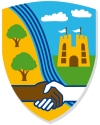Effective in-school formative assessment is the day-to-day assessment which is carried out by teaching staff and is key to effective classroom practice. It enables:
Teaching staff to identify how children are performing- this information is then used to provide appropriate support or challenge, evaluate teaching and plan future lessons or interventions.
Pupils to understand the knowledge gained in lessons and identify areas in which they could improve on.
Parents to gain an understanding of their child’s attainment and any next steps that they could support their children with.
A range of day-to-day formative assessments will be used including, for example:
- Questioning
- Feedback including evidence in books
- Observations
- Pupil self-assessments and peer assessments
- Pupil conferences/ conversations.
In-school summative assessment
Effective in-school summative assessment is done periodically and shows progress and attainment data for children Effective in-school summative assessment enables:
Senior Leadership Team to monitor the performance of children, groups and whole school, identify where interventions may be required, and work with teachers to ensure children are supported to make progress.
Teachers to evaluate learning at the end of a topic or unit of work.
Pupils to understand what knowledge and skills their have gained during a topic or unit of work.
Parents to stay informed about the achievement, progress and wider outcomes of their child.
Nationally standardised summative assessment
Nationally standardised summative assessment enables:
Senior Leadership Team to monitor the performance of children, groups and whole school, identify where interventions may be required, and work with teachers to ensure children are supported to make progress. To use local and National standardised data to further analyse data.
Teachers to understand National expectations and school attainment in the broader National context.
Pupils and parents to understand how children are performing in comparison to pupils Nationally.
National summative assessments include:
- Early Years Foundation Stage (EYFS) baseline
- Early Years Foundation Stage (EYFS) profile at the end of the Reception year
- Phonics screening check in Year 1
- Multiplication Tables Check in Year 4
- National Curriculum tests and teacher assessments at the end of Key Stage 2 (Year 6)
The following summarises the key assessment points:
| Weekly/ ongoing | End of term | End of year | |
| EYFS
|
|
|
|
| Phonics
|
|
|
|
| Reading |
|
|
|
| Writing
|
|
|
|
| Maths
|
|
|
|
| Wider curriculum |
|
|
|
| SEND Assessment tools
Ongoing
|
General
English
EAL Assessment tools
Autism
|
||
Reporting to parents
Parents’ evenings are held twice a year in the Autumn and Spring terms to inform parents about the attainment and progress of their children in all curriculum areas. An annual report is given out in the summer term followed by an open parents’ evening where parents can attend to discuss the content of the report.
Updated: September 2023
